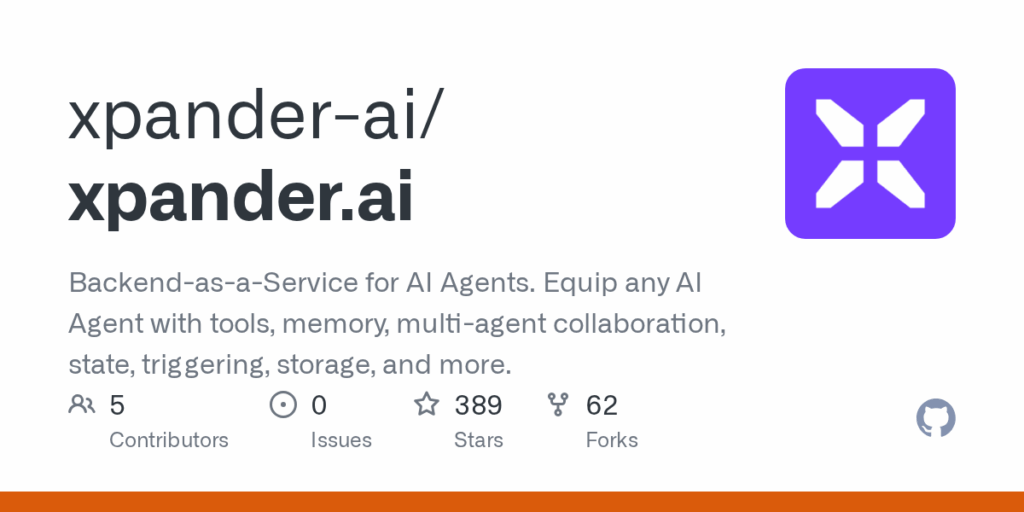xpander.ai
Basic Information
xpander.ai is a framework-agnostic Backend-as-a-Service designed to provide infrastructure for autonomous AI agents. It supplies core backend capabilities such as memory, tool integration, multi-user state, storage, agent-to-agent messaging, and event streaming. The platform supports multiple triggering options including MCP servers, agent-to-agent (A2A) messaging, API endpoints, and web interfaces so agents can be invoked from Slack, webhooks, or chat UIs. It is built to work with popular agent frameworks and SDKs like OpenAI ADK, Agno, CrewAI, LangChain, or directly with native LLM APIs. The repository contains SDKs and CLI tooling for Python and Node, templates for ready-made agents, examples and a minimal code snippet showing how to wire an agent to the backend. The runtime is open-source under Apache 2.0 while the hosted platform is commercial with a free tier.








